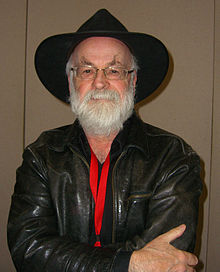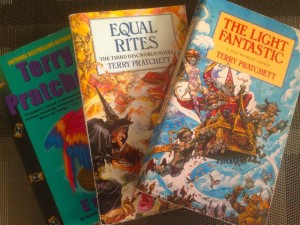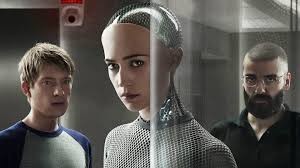
Terry Pratchett is the best-selling fantasy author many people have never heard of. By the time he died in 2015, he had sold over 85 million books (based mostly on his Discworld series), and until JK Rowling rolled around, he was the best-selling author in Britain. Including his last book, The Shepherd’s Crown, he published over 41 Discworld books. Not to mention dozens of others in different genres and subgenres.
So who was this guy?
First, he wrote fantasy books. With a comic twist.
Now before some of you start groaning, these fantasy characters aren’t like anything you’ve ever read. First of all, they’re funny. There are dwarfs six feet high, vampires who’ve taken a pledge not to drink blood, and a witch who hates riding brooms.
Secondly, they have real depth. They come alive. They have idiosyncrasies and flaws, but what makes them so endearing is that we can see ourselves in them. They’re us. Granted, they’re us if we lived on a flat world supported by four elephants standing on an enormous tortoise that soars through the cosmos.
And they’re likable, including Death, which became one of his most beloved characters.
Are you still with me?
It’s not just the characters that draw fans to his series. In each novel, he managed to slip in some wry social commentary, allowing us to see our world reflected in his.
In Thud!, he draws attention to racial prejudices, taking aim at those who fan the flames of hatred against particular groups. In Equal Rites, he makes a case for equal opportunities for women way back in 1978. And in Small Gods, he has something to say about the misuse of religion for political (or personal) gains.
Besides everything mentioned above, few authors could mix science and fantasy with such flair. Of course on Discworld, science became magic. Tiny ants build sugar pyramids to their dead queen under the flagstones of the Unseen University. Magic causes light to slow down and take its time crossing Discworld, sometimes piling up at the foot of mountain ranges. Tantric sex magic books have to be stored under cold water to keep them from bursting into flames and “scorching their severely plain covers.” And of course, few can coin a phrase like him. In the bad parts of town in Ankh-Morpork, he has “ladies of negotiable affection” working the street.
These are not just silly, harmless fantasy romps. They make us think. And wonder. And laugh. All at the same time.
That’s an amazing legacy to leave behind.
(Postscript: The author himself, in his biographic-essay collection A Slip of the Keyboard suggests beginning Discworld readers not start with his first two books, The Color of Magic and The Light Fantastic. True, as time went on, Mr. Pratchett’s writing became more masterful and in some cases, darker, but his first two entries are awfully darn good. If you want to start a bit later in his series, I suggest Hogfather and Mort.)



